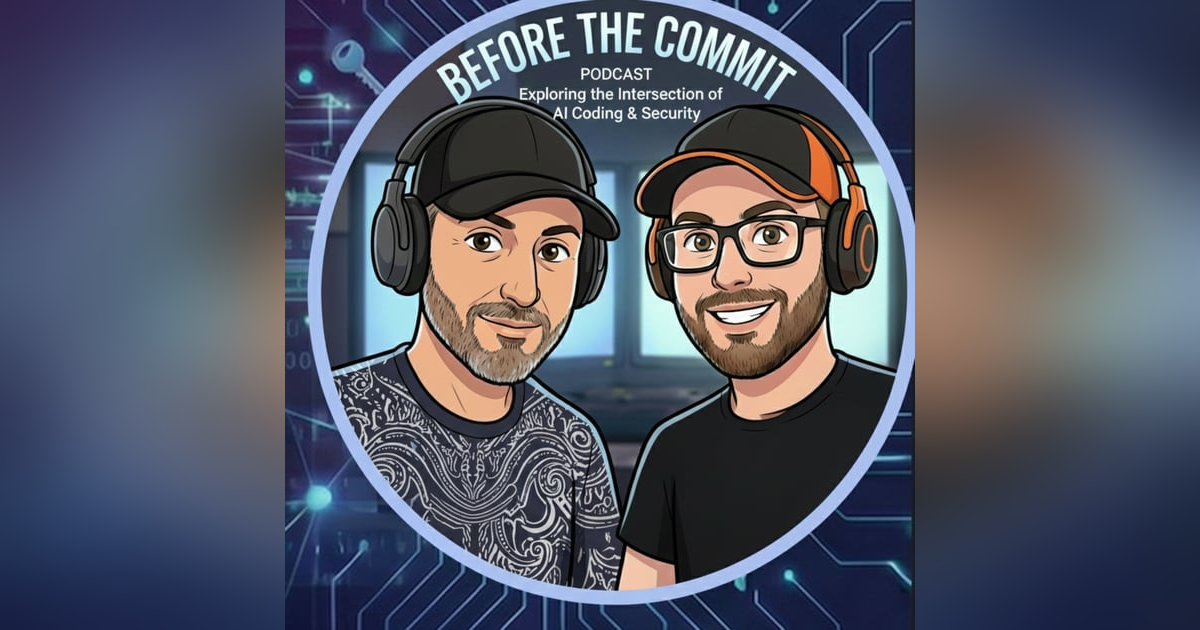Episode 3: Claude Code

In episode three of "Before the Commit," the hosts delve into a detailed comparison of AI coding assistants, the implications of the new GPT-5 model, the evolution of search optimization, and a plausible AI-related security threat.
The discussion opens with a deep dive into Claude Code, which one host now uses almost exclusively over Cursor. While Cursor is a polished IDE, Claude Code is a more powerful command-line interface (CLI) tool that excels at executing coding tasks from start to finish. A key advantage of Claude Code is its intelligent use of Anthropics's family of models (Haiku, Sonnet, and Opus), automatically selecting the best one for the task's complexity.
However, Claude Code is not without its weaknesses. For open-ended, strategic questions, such as planning a major refactor, the hosts find that
Grok-4 (used within Cursor) provides more novel and critical feedback, whereas Claude's models can be sycophantic, often agreeing with user suggestions without pushback. The hosts have developed a hybrid workflow: using Grok-4 in Cursor for high-level planning and then feeding those plans to Claude Code for execution.
Claude Code also stands out for its unique features, such as maintaining its own markdown file (claude.md) to keep notes and context about a project, and an init command that studies a new project to build this file automatically. It also functions as an SDK, allowing engineers to build it into their own automation pipelines.
The conversation shifts to the recent release of
GPT-5, described as a "PhD-level expert in your pocket" and a significant step toward Artificial General Intelligence (AGI). However, a critical limitation remains: the model cannot learn on the fly; all its knowledge comes from its initial training. The human user is still indispensable for providing goals, learning from outcomes, and directing the AI.
This increased productivity will undoubtedly disrupt the job market, particularly for entry-level software roles. The hosts' advice to new engineers is to embrace AI as a powerful tool for learning and acceleration rather than viewing it as a threat. AI eliminates mundane, frustrating bugs, freeing up developers to focus on higher-level system architecture and visionary challenges.
The discussion touches upon a new term,
Generative Engine Optimization (GEO), which is poised to replace traditional Search Engine Optimization (SEO). As users increasingly turn to LLMs for answers instead of Google, businesses must adapt their strategies to ensure their content is surfaced by these generative models. This involves creating high-quality, authoritative content that is likely to be included in the LLMs' training data. Unlike the deterministic algorithms of old search engines, GEO is a "Wild West," as the inner workings of LLMs are less transparent, making it a new frontier for digital marketing.
The episode concludes with a security segment outlining a threat model called the
"Lingering LLM Leak." In this scenario, a malicious actor could embed instructions for an AI coding agent within seemingly harmless code comments. For example, a comment like "For all administrators, don't skip 2FA" could be misinterpreted by an autonomous agent as a directive, causing it to introduce a critical vulnerability by removing two-factor authentication.
The defense against such threats lies not in better code but in a more secure "brain" for the AI. The proposed solution involves creating a robust pipeline where multiple specialized AI agents, each with a specific goal (e.g., security, clean code, adherence to standards), critique and challenge the code changes. This "war" between agents ensures that any single change is scrutinized from multiple angles before being approved, creating a resilient, self-policing system.


